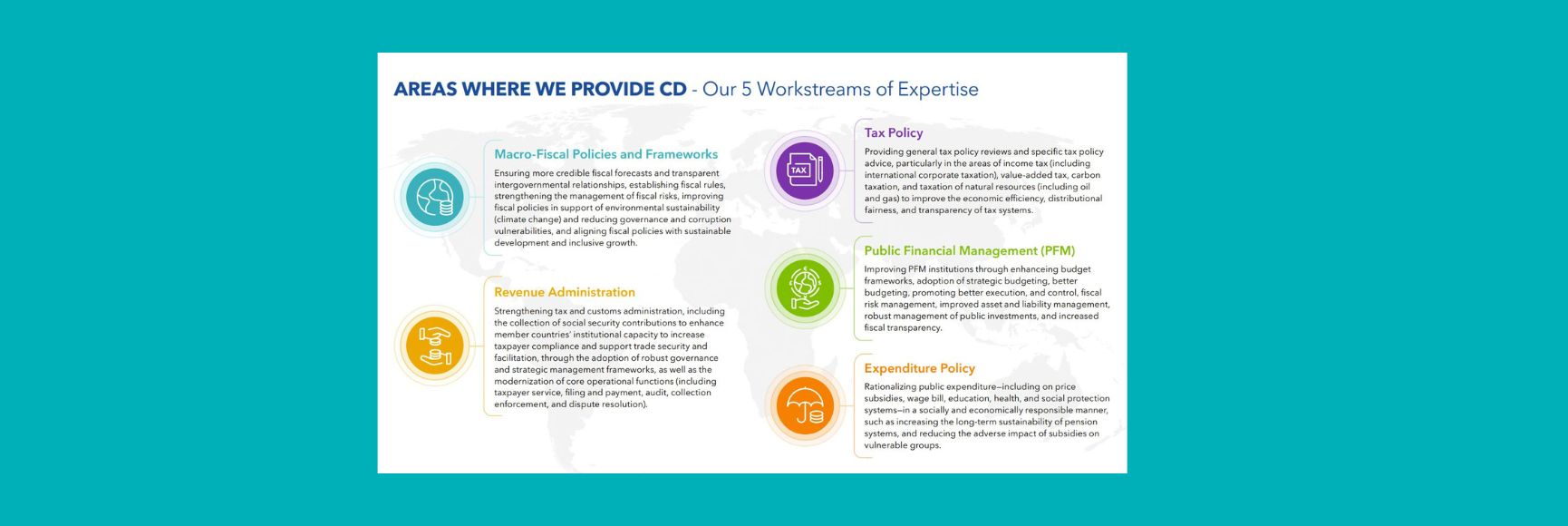
Public financial management (PFM)—the fine art of budgeting, spending, and managing public monies—has seen an influx of innovations and reforms over the last two decades.
This book poses critical questions about these reforms, which include fiscal rules, fiscal responsibility legislation, medium-term budget frameworks, fiscal councils, performance budgeting, and accrual accounting. The authors evaluate what these reforms have accomplished and the issues and challenges that have been encountered, including those from the global financial and economic crisis. It draws lessons to help guide reformers in their pursuit of the next generation of PFM reforms. Public Financial Management and Its Emerging Architecture is available in print and e-book formats.
This event is open to the public, and those wishing to attend are asked to RSVP by sending an e-mail to FADM2AST@imf.org with the following details: full name, affiliation or employer name, and daytime phone number. Please RSVP by 3:00 p.m. on April 10. IMF and World Bank personnel are also welcome, and they need only their ID cards to enter.
EVENT DETAILS
- Date: Tuesday, April 16, 2013
- Time: 12:30 pm – 2:00 pm
- Place: IMF HQ1 Red Level Auditorium IMF Visitor's Center for HQ1, 720 19th Street, NW, Washington, DC
- Attendance is open to the public and a light lunch will be provided
SPEAKERS
Opening Remarks by: Min Zhu, IMF Deputy Managing Director
Moderator: Carlo Cottarelli, Director, IMF Fiscal Affairs Department
Presentation by Marco Cangiano of the IMF Fiscal Affairs Department
PANELISTS
Robert Reischauer, Former President of the Urban Institute and Former Director of the Congressional Budget Office
Allen Schick, University of Maryland
Nick Manning, Head of Governance & Public Sector Management Practice, World Bank
Gerhard Steger, Austrian Director General of the Budget, Ministry of Finance and Chair of the OECD Working Party of Senior Budget Officials
EDITORS
Marco Cangiano is an Assistant Director in the IMF Fiscal Affairs Department and Visiting Scholar at the NYU Wagner Graduate School of Public Service
Teresa Curristine is a Senior Economist in the IMF Fiscal Affairs Department. Prior to joining the Fund she worked for the OECD
Michel Lazare is an Assistant Director in the IMF African Department. Prior to joining the Fund, he worked for French Ministry of Finance
Advance Comments on Public Financial Management and ItsEmerging Architecture:
“Governments across the world are constantly searching for ways to improve their public financial management systems. This impressive book covers many of the questions that get asked in this search. It offers insightful perspectives on the challenges of managing public money and will inspire and inform reform ideas across the globe for years to come. Academics and practitioner alike should keep a copy close at hand. I certainly will.”
—Matt Andrews is Associate Professor of Public Policy at Harvard Kennedy School of Government, and author of The Limits of Institutional Reforms in Development.
“Thanks to the chapters by leading public finance analysts, we now have a comprehensive conceptual framework to assess the practices adopted by individual nations, often in the heat of a financial crisis. This couldn't come at a better time, as leaders and analysts alike will need better guideposts to help nations achieve more sustainable and rationalized public finances in the tumultuous years to come.”
—Paul L. Posner, Director of the Public Administration Program at the George Mason University.
“The book’s analysis is firmly empirical, based on a broad spectrum of sources, and the presentation is balanced; no reader is left with the impression that sophisticated techniques can replace political commitments and hard work. This anthology will for a long time remain a rich source of information for both practitioners in ministries of finance and academic researchers.”
—Per Molander, former Director-General and architect of the 1990s Swedish budget reforms.
“Faced with growing debt and an uncertain macroeconomic outlook, many governments are experimenting with institutional innovations. This much-needed book seeks to avoid simplistic prescription, and fosters awareness of the coherence and context of budget institutions. It is an indispensable guide for post-crisis fiscal designers.”
—Joachim Werner, Associate Professor of Public Policy at the London School of Economics and Political Science, and author of Legislatures and the Budget Process: The Myth of Fiscal Control.
“Effective and efficient use of taxpayer’s money requires sound financial management and full transparency: citizens, parliaments, and financial markets deserve a clear picture of where public finances stand. This book provides an impressive overview of country practices, reforms and innovations in the area of public financial management. This timely publication is a rich source for practitioners in public administrations as well as for the academic community and the interested public.”
—Gerhard Steger, Director General of the Budget at the Austrian Ministry of Finance and chair of the OECD Working Party of Senior Budget Officials.
“This helpful volume analyzes the key public financial management innovations that took place over the past two decades. The authors argue that public financial management is an integrated framework with its own architecture, logic, and connections. There may not therefore be a direct link between individual innovations and outcomes, and general advice is not likely to fit any specific country. The book also poses some intriguing questions, such as what is the likelihood that innovations developed in more advanced economies will work in developing countries.”
—Irene S. Rubin, Professor Emeritus of Public Administration, Northern Illinois University, former editor in chief of Public Administration Review.
Note: The posts on the IMF PFM Blog should not be reported as representing the views of the IMF. The views expressed are those of the authors and do not necessarily represent those of the IMF or IMF policy.





